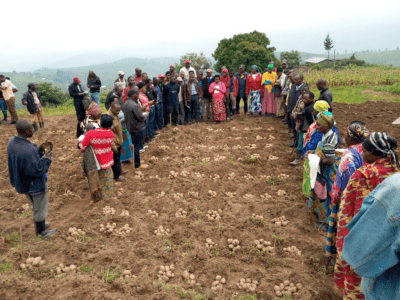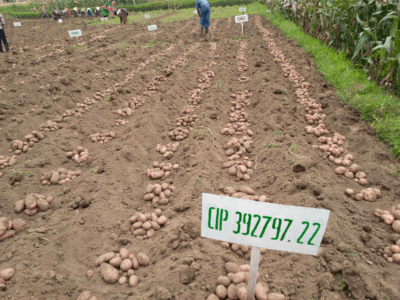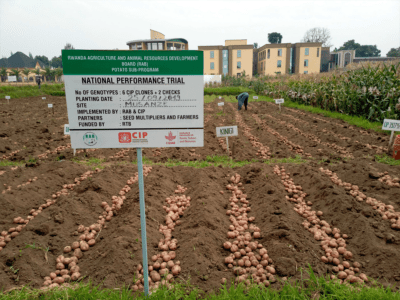Addressing Challenges and Driving Growth Through Collaborative Initiatives
Rwanda’s potato industry has long grappled with the challenge of limited access to quality seed for improved varieties, hindering the sector’s growth and potential. This scarcity has been attributed to various factors, including the lengthy and costly process of seed production, which has deterred many seed multipliers from investing in its cultivation. However, recent collaborative efforts spearheaded by the International Potato Center (CIP), in partnership with the Rwanda Agriculture and Animal Resources Development Board (RAB) and supported by organizations like CGIAR RTB Program and USAID, are poised to revolutionize the landscape of potato farming in the country.
The initiative, which saw the release of 11 new potato varieties between 2019 and 2021, marks a significant milestone in Rwanda’s agricultural sector. These varieties, including Ndamira, Cyerekezo, Kazeneza, and others, boast traits such as high yields, pest and disease tolerance, drought resistance, and superior cooking and processing qualities. The introduction of these varieties not only addresses the seed scarcity issue but also provides farmers with a diverse range of options for cultivation, ultimately enhancing food security and increasing farm incomes across the nation.
Despite the immense potential of these new varieties, their adoption among farmers has been relatively modest. To bridge this gap, concerted efforts are underway to raise awareness and promote their utilization within the farming community. Innovative approaches, such as establishing learning sites and mother plots, along with the distribution of small packs, are being employed to showcase the benefits of these varieties to end-users. Moreover, the collaboration between CIP, RAB, and seed potato companies, supported by initiatives like the Great Lakes Accelerated Innovation Delivery Initiative, aims to facilitate the rapid adoption of these varieties on a larger scale.

Key stakeholders, including researchers, agronomists, seed multipliers, and government entities, are working in tandem to streamline seed production processes and expand cultivation efforts. Initiatives such as the Early Generation Seed Production (EGSP) company, supported by the Ministry of Agriculture and Animal Resources, are playing a crucial role in increasing the availability of quality seed through investments in infrastructure and capacity building. Similarly, seed multipliers like Agriseed and Seed Potato Fund (SPF) Ikigega are actively involved in distributing new varieties to farmers and providing extension services to ensure sustainable production practices.
The distribution of seed of the new varieties to thousands of farmers across the country underscores the tangible impact of collaborative endeavors in driving agricultural transformation. Farmers have expressed appreciation for the higher yields and improved characteristics of these varieties, signaling a shift towards more sustainable and productive farming practices. As Rwanda’s potato industry continues to evolve, guided by innovation and collaboration, it is poised to achieve unprecedented growth and contribute significantly to the nation’s food security objectives.
In conclusion, the journey towards transforming Rwanda’s potato industry is marked by collective determination and collaborative action. While challenges persist, the strides made thus far demonstrate the sector’s resilience and potential for growth. As stakeholders remain committed to driving innovation and adoption, the future of Rwanda’s potato industry appears bright, promising a sustainable and prosperous agricultural landscape for generations to come.







